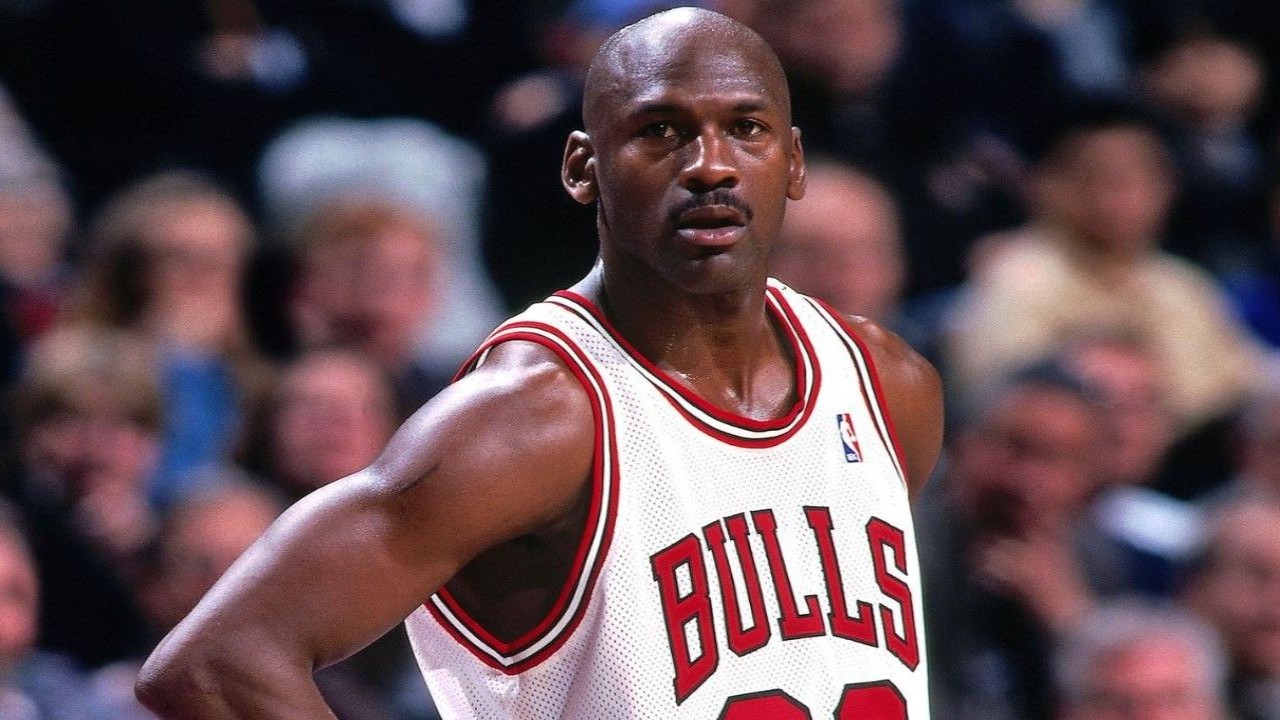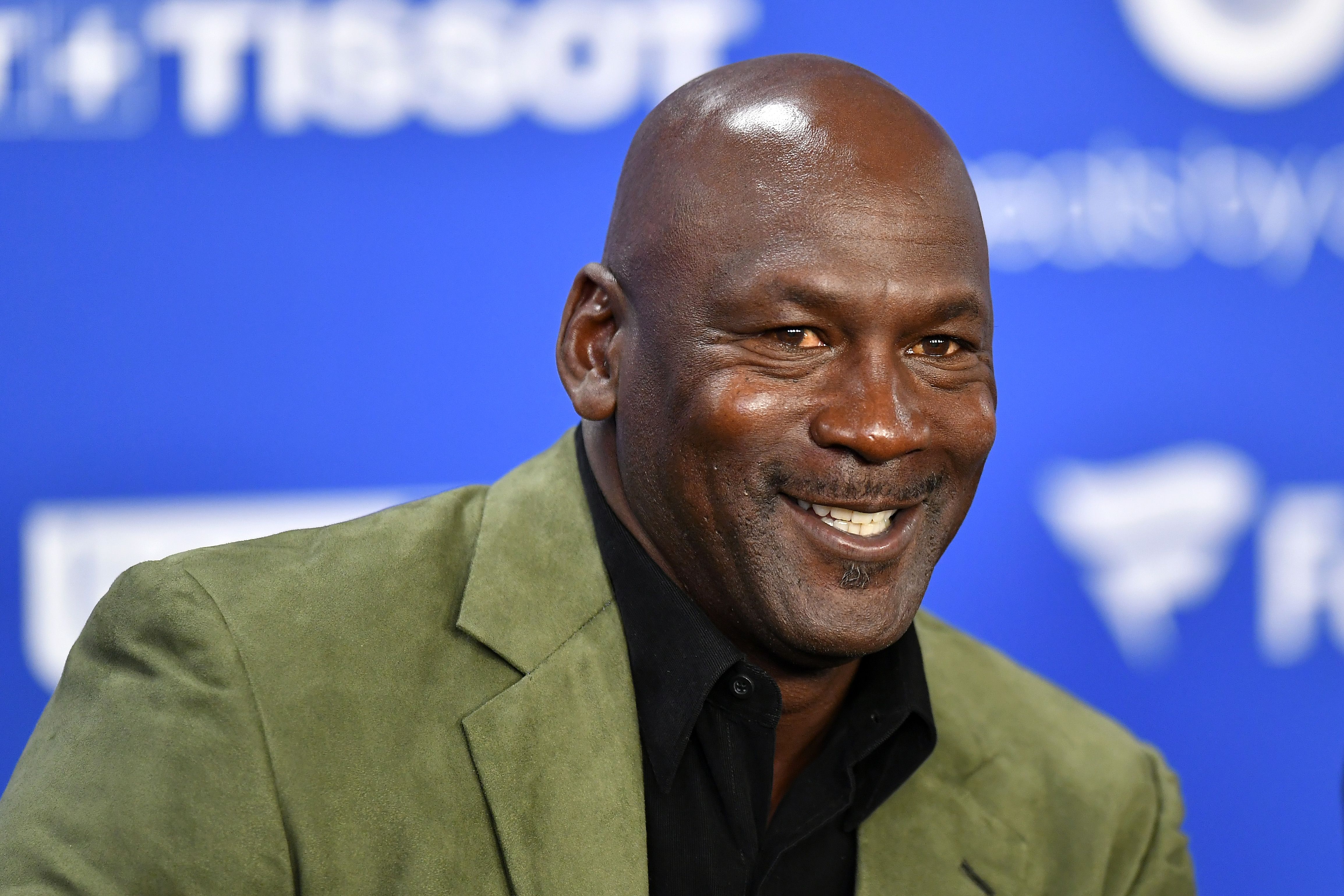Debunking the viral claim – Michael Jordan did not advocate stripping medals from kneeling athletes

Michael Jordan, the legendary basketball player, was allegedly quoted in a widely shared Facebook post saying that athletes who protest during the playing of the national anthem should be stripped of their medals. Although the post has caused a great deal of confusion and fury, it is important to make clear that this assertion is wholly untrue.
A sentence from the disputed Facebook post purports to be from Michael Jordan and reads, “Any athlete who kneels for our national anthem should lose their medal.” This fake message went viral on social media quite fast, with many people spreading it without checking its veracity.
The viral nature of the message draws attention to the persistent problem of misinformation in the digital age, when erroneous claims may proliferate quickly and frequently have serious repercussions.
Michael Jordan’s actual stance on athlete protests
Michael Jordan has stated support for athletes’ rights to peaceful protest, including kneeling during the playing of the national anthem, in contrast to the bogus quotation that has been making the rounds on the internet. Jordan stated, “One of the fundamental rights this country is founded on was freedom of speech, and we have a long tradition of nonviolent, peaceful protest. Those who exercise the right to peacefully express themselves should not be demonized or ostracized.”
Jordan’s remarks sparked a contentious national conversation when then-President Donald Trump criticized sportsmen for choosing to show their disapproval of racial injustice and inequality by kneeling during the national anthem. Following his comments, which demanded that NFL owners fire players for kneeling, athletes, supporters, and public figures—including Jordan—reacted angrily.
Jordan’s comments were a rare public political stance from the typically apolitical former NBA star. Known for his reluctance to engage in political discussions throughout his career, Jordan’s statement in support of athletes’ rights to protest marked a significant moment. He emphasized the importance of unity and the need to avoid further division in a country already grappling with increasing polarization.

Michael Jordan sincerely believes in the freedom of speech and the right to peaceful protest, two essential rights protected by the United States Constitution. His stance on kneeling during the playing of the national anthem is based on this opinion. Rather than creating greater rifts, his 2017 statement stressed how important it is for Americans to support one another and work toward unity.
“At a time of increasing divisiveness and hate in this country, we should be looking for ways to work together and support each other and not create more division,” Jordan said. “I support Commissioner Adam Silver, the NBA, its players, and all those who wish to exercise their right to free speech.”
Jordan’s remarks are representative of a larger viewpoint held by other public celebrities and athletes who have advocated for nonviolent dissent. Instead of punishing people who raise awareness of these problems, they stress the significance of tackling the underlying causes of racial injustice and inequality.
The origins of the false claim
It looks like the widely shared post that misrepresents Jordan’s opinions was done on purpose to cause rifts and misunderstanding. The post sought to capitalize on the strong feelings around the topic of athlete protests and patriotism by appointing a contentious and offensive statement to a highly esteemed person such as Michael Jordan.

False information regarding well-known people like Jordan has been circulated before. It is far too simple for false information to spread quickly in today’s fast-paced information world before it has a chance to be verified. A misleading comment can become a trending topic on social media within hours due to its wide reach and quick transmission skills.
The importance of verifying information
The fake quotation ascribed to Jordan has gained widespread distribution, which emphasizes how crucial it is to confirm material before disseminating it, particularly when it deals with delicate and contentious subjects. People need to be cautious and use critical thinking skills because anyone can now produce and share content online.
Misinformation can have serious consequences, from damaging reputations to inciting unnecessary conflict. In this case, the false attribution of a harsh stance to Michael Jordan could have led to a backlash against him and further inflamed tensions around the issue of athlete protests.





